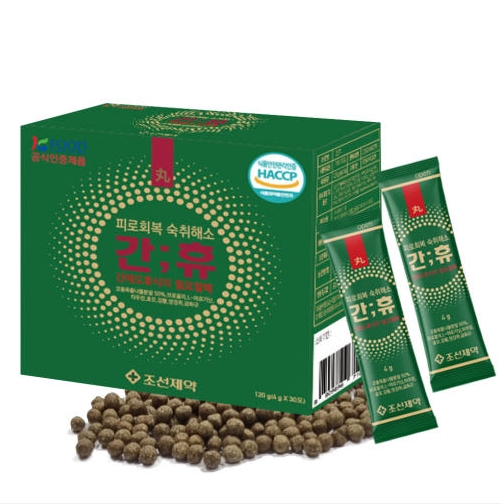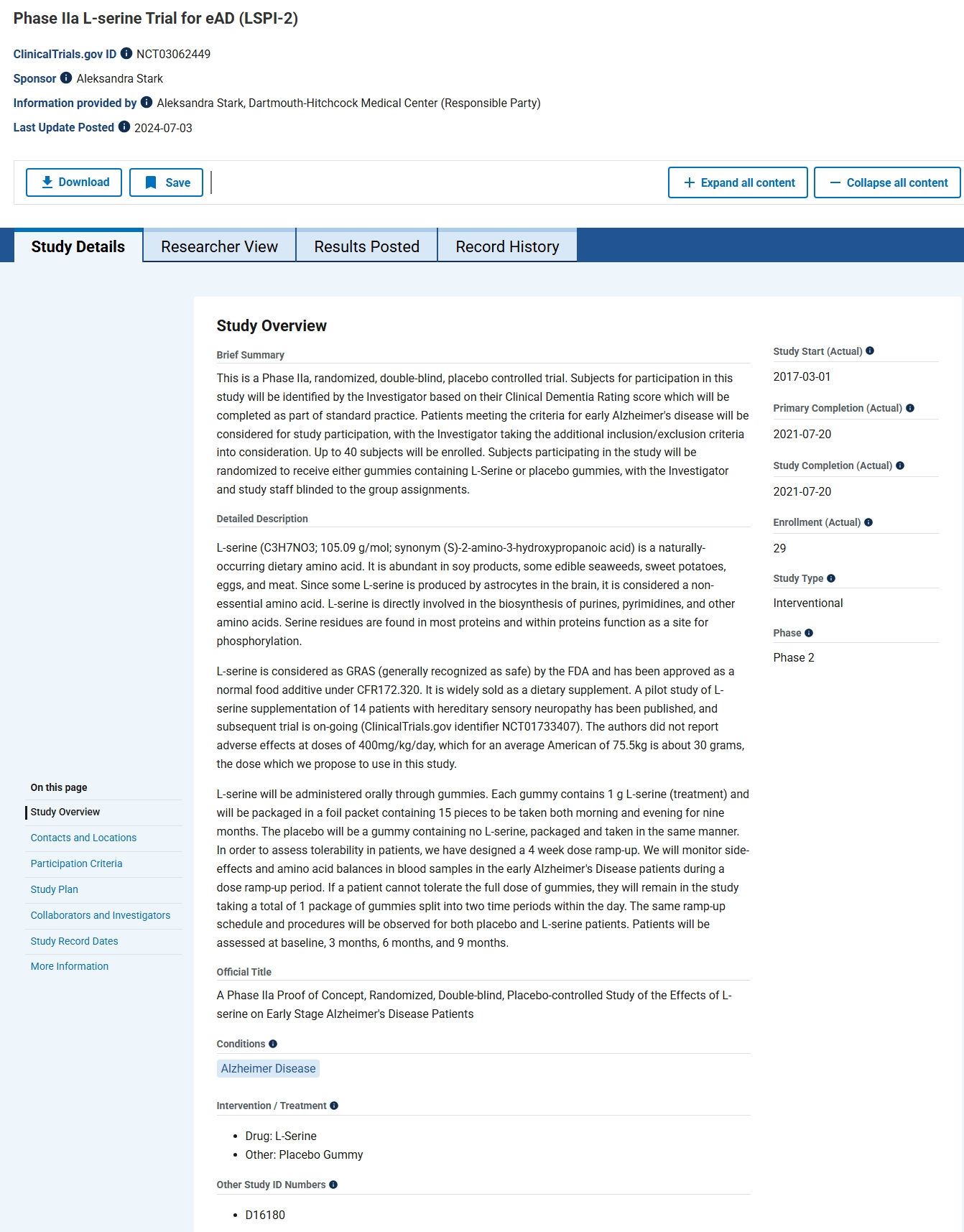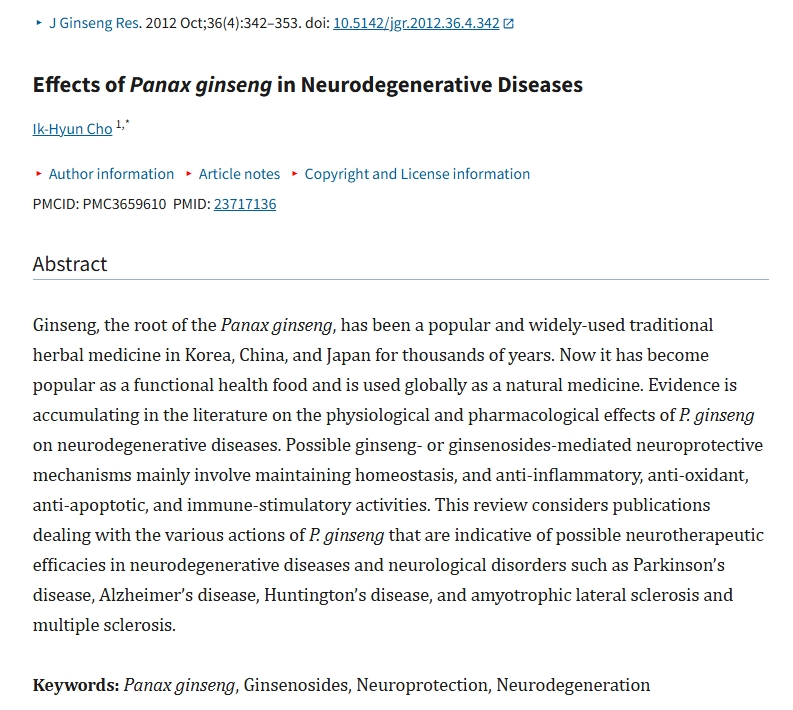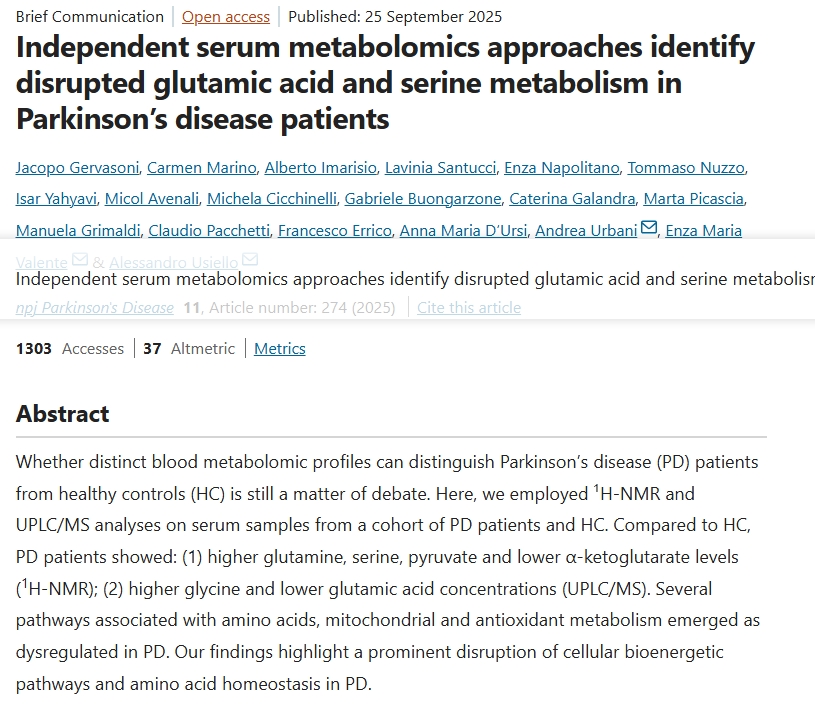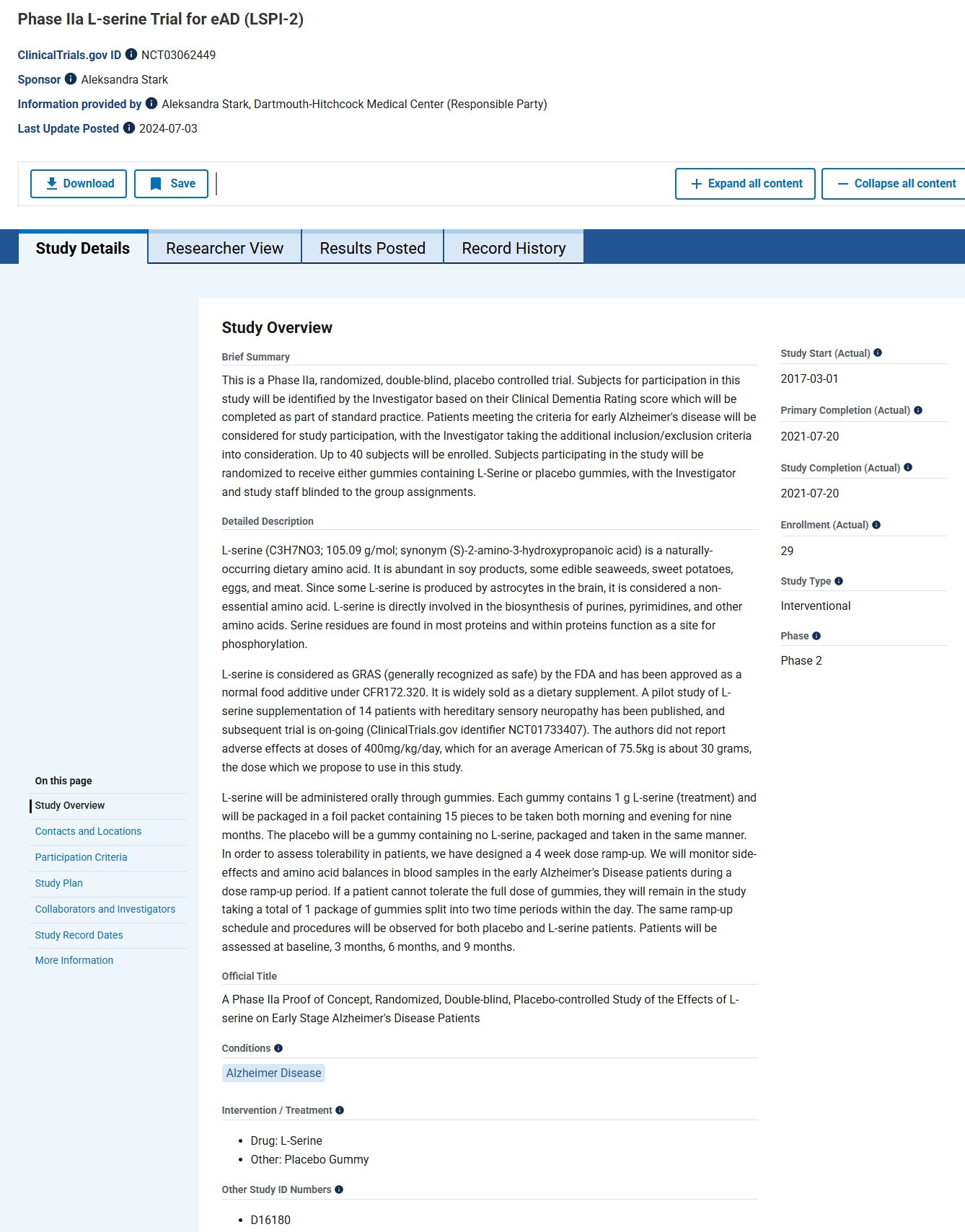Brief Summary
This is a Phase IIa, randomized, double-blind, placebo controlled trial. Subjects for participation in this study will be identified by the Investigator based on their Clinical Dementia Rating score which will be completed as part of standard practice. Patients meeting the criteria for early Alzheimer's disease will be considered for study participation, with the Investigator taking the additional inclusion/exclusion criteria into consideration. Up to 40 subjects will be enrolled. Subjects participating in the study will be randomized to receive either gummies containing L-Serine or placebo gummies, with the Investigator and study staff blinded to the group assignments.
Detailed Description
L-serine (C3H7NO3; 105.09 g/mol; synonym (S)-2-amino-3-hydroxypropanoic acid) is a naturally-occurring dietary amino acid. It is abundant in soy products, some edible seaweeds, sweet potatoes, eggs, and meat. Since some L-serine is produced by astrocytes in the brain, it is considered a non-essential amino acid. L-serine is directly involved in the biosynthesis of purines, pyrimidines, and other amino acids. Serine residues are found in most proteins and within proteins function as a site for phosphorylation.
L-serine is considered as GRAS (generally recognized as safe) by the FDA and has been approved as a normal food additive under CFR172.320. It is widely sold as a dietary supplement. A pilot study of L-serine supplementation of 14 patients with hereditary sensory neuropathy has been published, and subsequent trial is on-going (ClinicalTrials.gov identifier NCT01733407). The authors did not report adverse effects at doses of 400mg/kg/day, which for an average American of 75.5kg is about 30 grams, the dose which we propose to use in this study.
L-serine will be administered orally through gummies. Each gummy contains 1 g L-serine (treatment) and will be packaged in a foil packet containing 15 pieces to be taken both morning and evening for nine months. The placebo will be a gummy containing no L-serine, packaged and taken in the same manner. In order to assess tolerability in patients, we have designed a 4 week dose ramp-up. We will monitor side-effects and amino acid balances in blood samples in the early Alzheimer's Disease patients during a dose ramp-up period. If a patient cannot tolerate the full dose of gummies, they will remain in the study taking a total of 1 package of gummies split into two time periods within the day. The same ramp-up schedule and procedures will be observed for both placebo and L-serine patients. Patients will be assessed at baseline, 3 months, 6 months, and 9 months.



